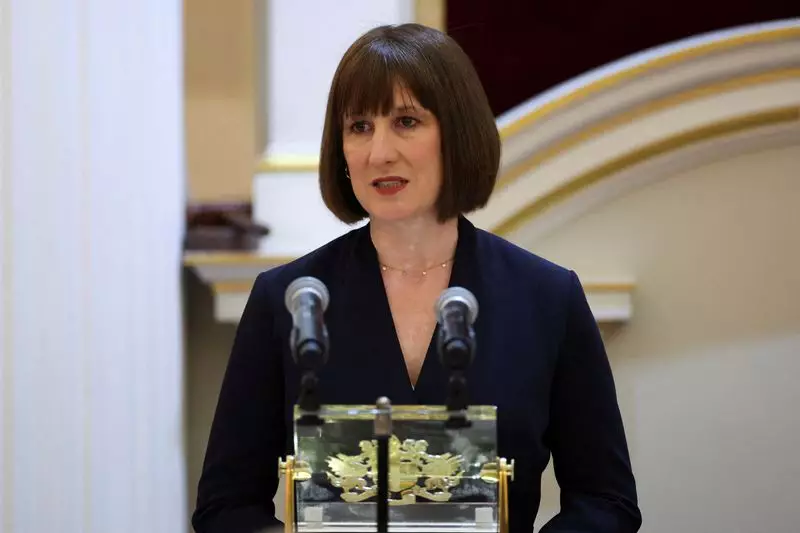In the wake of increasing government borrowing costs and a declining pound, the UK finds itself at a pivotal moment in its economic journey. Prime Minister Keir Starmer and his finance minister Rachel Reeves are grappling with significant market challenges that threaten to undermine public confidence as well as the economic stability of the nation. With lingering effects from past Conservative governments and the aftermath of Brexit, the current Labour administration faces a daunting landscape where both domestic and international factors could dictate the success of its fiscal policies.
Recent developments in the UK financial markets have raised eyebrows, particularly the soaring yields on government bonds, which reached their highest point since 1998. This climb has coincided with a drop in the value of the pound, which fell to its lowest levels since November 2023. As the market reacts to these fluctuations, critics point fingers at previous government actions that have allegedly compromised the financial fabrics of the UK, notably citing the disastrous mini-budget initiated under Liz Truss’s short-lived tenure.
Starmer’s administration has publicly acknowledged these past missteps, positioning themselves as the responsible party tasked with mending the economy. However, the looming question remains: can they genuinely affect market sentiment when external factors—such as U.S. economic trends and former President Trump’s proposed tariffs—hold such sway?
As Reeves undertakes a mission to stabilize the public finances, she has made it clear that her fiscal targets are non-negotiable. However, the options available to achieve this stability are severely limited. If the Office for Budget Responsibility indicates a deviation from her fiscal targets, Reeves might have to resort to austerity measures that threaten to alienate a significant portion of the Labour Party’s base.
Despite discussions about potential spending cuts looming on the horizon, the specter of tax increases does not appear to be a viable option either, especially after Reeves previously instituted higher social security contributions that have already provoked discontent among businesses. The financial landscape appears riddled with complexities, making it challenging for the government to achieve a balance that satisfies stakeholders across the spectrum.
As the UK navigates through its financial turmoil, the repercussions of global economic policies are becoming increasingly evident. With the U.S. experiencing a strong economic recovery and the possibility of President Trump reintroducing tariffs, the implications for UK markets could be dire. The potential for increased import costs could lead to higher inflation rates in the U.S., which in turn would affect global markets, including the UK’s.
Markets are projecting only a marginal interest rate cut by the Federal Reserve in 2025. The correlation between British gilts and U.S. Treasuries suggests that the British bond market’s ability to recover in the face of increased global uncertainties remains tenuous at best. The situation becomes more precarious when examining Britain’s dependence on foreign investments, a sentiment echoed by former Bank of England Governor Mark Carney’s remarks about relying on “the kindness of strangers.”
The Shift in Investment Dynamics
Sanjay Raja from Deutsche Bank highlights an essential transformation in the UK’s funding landscape: a notable decline in the percentage of government debt purchased by domestic pension and insurance funds. This atmospheric shift not only indicates a diversification of investment but also aligns with a recent uptick in foreign ownership—primarily driven by hedge funds.
The heightened volatility in the gilt market, in part, emanates from changing investor demographics, where an increasing number of foreign investors exhibit a more fickle approach to UK government securities. This shift raises concerns regarding the long-term sustainability of borrowing practices and how the government can shield itself from the type of unpredictable market movements that could be triggered by global events.
Navigating through this complex economic scenario is undeniably challenging for Rachel Reeves. The consensus among experts is that while she may not need to make immediate dramatic fiscal changes, the prevailing uncertainty poses significant risks as she prepares for a detailed economic growth speech in the near future. The gap between ambitious economic plans and the practical timeline required for enactment further exacerbates her predicaments.
Economists like Hetal Mehta recognize that the overarching goal must always center around economic growth. Whether growth goals will be met in the near-term, medium-term, or far into the future remains to be seen, but the lack of immediate solutions is a growing concern. As the summer approaches, the pressure on the government will likely intensify, and how Starmer and Reeves respond to these demands could determine not just their political future but also the strength of the UK economy itself.
The UK stands at an economic crossroads, uncertain and fraught with challenges. The financial decisions made today will reverberate through future generations, urging the current leadership to navigate wisely through the murky waters of fiscal responsibility and external influences.

